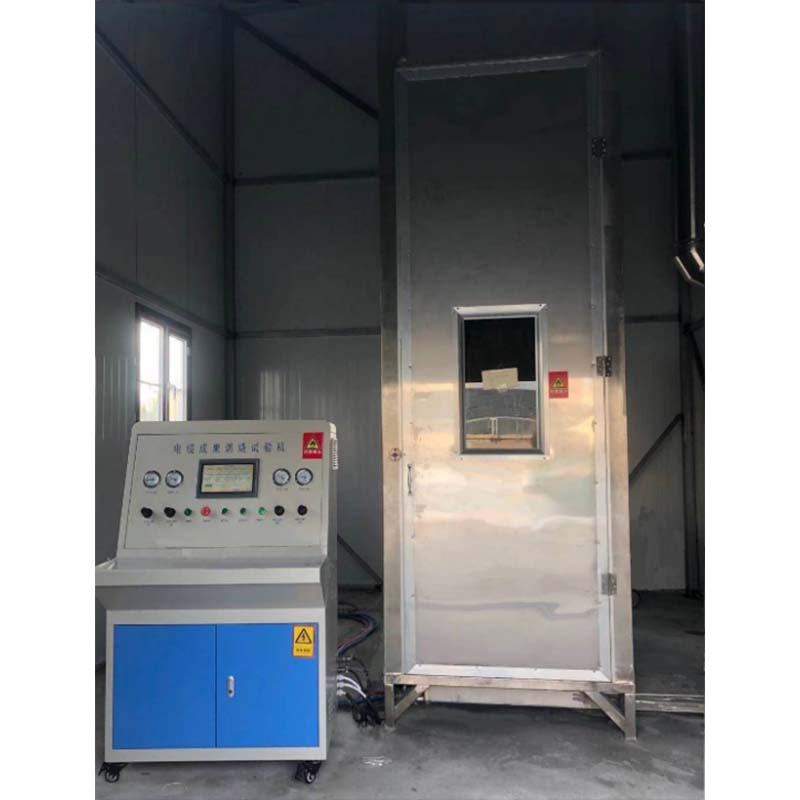Innovative Solutions for Tailored Insulation Resistance Testing Equipment and Their Applications
Understanding Custom Insulation Resistance Testers
In the world of electrical engineering and maintenance, the importance of insulation resistance cannot be overstated. Insulation resistance testers play a crucial role in ensuring the safety and functionality of electrical systems by measuring the resistance of insulation materials. While standard insulation resistance testers are widely used, there is a growing demand for custom insulation resistance testers tailored to specific needs. This article delves into the significance, functionality, and advantages of custom insulation resistance testers.
The Importance of Insulation Resistance Testing
Insulation resistance testing is essential in identifying potential insulation failures that can lead to electrical faults, equipment damage, or even hazards such as electric shocks and fires. By evaluating the integrity of insulating materials, technicians can prevent costly downtime and enhance the reliability of electrical systems. Regular testing can also extend the lifespan of equipment and ensure compliance with safety regulations.
What is a Custom Insulation Resistance Tester?
A custom insulation resistance tester is engineered to meet the unique requirements of a particular industry, application, or environment. Unlike standard testers, which come with fixed features and capabilities, custom testers can be designed to incorporate specific voltage levels, testing protocols, and data logging features that align with the user's needs. This customization can be pivotal in specialized sectors, such as power generation, telecommunications, and manufacturing, where specific conditions must be monitored.
Key Features and Functionality
When designing a custom insulation resistance tester, several key features can be integrated
1. Adjustable Voltage Settings Different applications require different testing voltages. Custom testers can be tailored to operate at various voltage ranges, ensuring compliance with industry standards and specific equipment requirements.
2. Data Logging and Reporting A custom tester can incorporate advanced data logging capabilities, allowing for real-time monitoring and analysis of insulation resistance levels. This feature is vital for maintaining records and generating detailed reports, which are essential for audits and inspections.
custom insulation resistance testers

3. User-Friendly Interfaces To enhance usability, a custom insulation resistance tester can be equipped with intuitive interfaces that allow technicians to interact easily with the device. Touchscreen displays, customizable settings, and clear visual indicators make the testing process more efficient.
4. Environmental Adaptability Specially designed testers can be built to withstand harsh environmental conditions, such as extreme temperatures, humidity, and exposure to dust or chemicals. This adaptability increases the tester's durability and ensures reliable performance in challenging situations.
5. Connectivity Features Custom insulation resistance testers can feature modern connectivity options, such as Bluetooth or Wi-Fi, allowing for remote monitoring and easy data transfer to other devices or cloud storage platforms.
Advantages of Custom Insulation Resistance Testers
1. Tailored Solutions Custom insulation resistance testers address specific testing needs, leading to more accurate results and improved reliability.
2. Enhanced Efficiency By streamlining the testing process with user-friendly designs and advanced features, custom testers save time and reduce the risk of human error.
3. Cost-Effectiveness While there may be an initial investment in custom equipment, the long-term savings from reduced maintenance costs and enhanced equipment longevity can outweigh these costs.
4. Regulatory Compliance Custom testers can be designed to meet industry-specific regulations, ensuring compliance and safeguarding against legal repercussions.
Conclusion
In conclusion, custom insulation resistance testers represent an essential advancement in ensuring the safety and efficiency of electrical systems. By addressing specific needs through tailored designs, these testers enhance operational efficiency and compliance, ultimately reducing risks associated with insulation failures. As industries continue to evolve, the demand for such specialized testing equipment is likely to grow, highlighting the necessity of robust insulation resistance testing in modern electric power systems.
-
The Role of Tensile Force Testers in Quality Control and Material Science
NewsAug.01,2025
-
Maintenance and Safety Tips for Aging Ovens
NewsAug.01,2025
-
Density Balance in Forensic Science
NewsAug.01,2025
-
Advanced Optical Measurement Technologies
NewsAug.01,2025
-
A Buyer’s Guide to Tensile Test Machines
NewsAug.01,2025
-
Why the Conductor Resistance Constant Temperature Measurement Machine Redefines Precision
NewsJun.20,2025
 Copyright © 2025 Hebei Fangyuan Instrument & Equipment Co.,Ltd. All Rights Reserved. Sitemap | Privacy Policy
Copyright © 2025 Hebei Fangyuan Instrument & Equipment Co.,Ltd. All Rights Reserved. Sitemap | Privacy Policy
